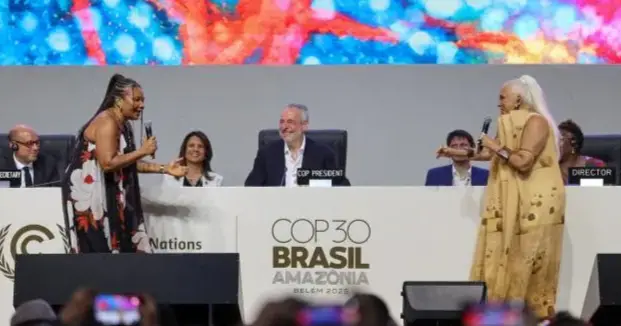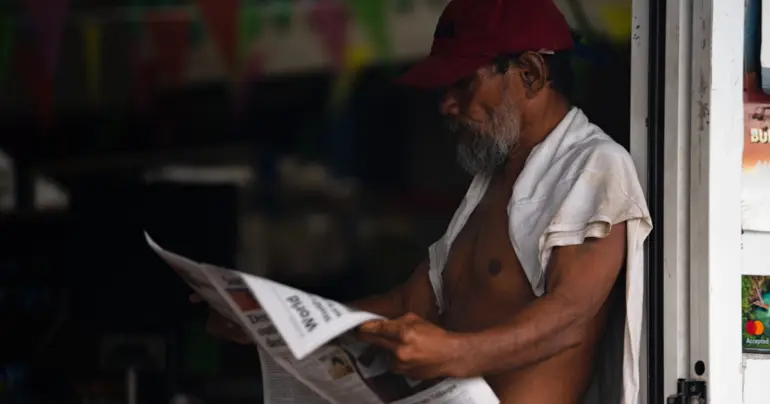Pacific move together on sustainable waste management solutions
Pacific Island countries converged in Rarotonga, Cook Islands and reaffirmed their commitments, in a collective voice, echoing the region’s aspirations to implement appropriate and sustainable solutions for their waste management challenges at the Secretariat of the Pacific Regional Environment Programme (SPREP) implemented, and European Union funded PacWaste Plus Programme Steering Committee meeting.
During the meeting, held from 26-28 April, delegates from participating Pacific islands held several Talanoa and capacity-building sessions on their unique challenges and worked together to identify possible solutions by sharing lessons learned to collectively address the growing concern of waste management in the region.
The 2023 programme steering committee meeting, hosted, and chaired by the Ministry of Infrastructure Cook Islands, opened with a captivating cultural welcome ceremony, followed by opening remarks from Hon. Albert Nicholas, Minister for Infrastructure Cook Islands & National Environment Service.
“Waste is an issue for all of us, as we all create it, which means, that we are all responsible for what happens to it,” said Hon. Nicholas.
He further explained that in the Cook Islands, items imported, continued to grow, to not only meet the demand from communities but also the tourism sector and with a small land mass, there were limited viable options for imported waste and end-of-life management or export. As such, most items imported are disposed of at landfills or stockpiled on vacant land or end up in the environment.
“Although the 3 Rs of waste management to reduce, reuse and recycle are promoted, it is unfortunately, not enough, and this is why, the Cook Islands is focusing our PacWaste Plus investment to support the implementation of an effective and sustainable financing system, known as the Advance Recovery Disposal Fee (ARDF) to enable long-term, self-financing collection and recovery of recyclable items,” added Hon. Nicholas.
“I am pleased to announce that our Cabinet, recently approved the ARDF Policy and its inclusion as Part 6 of our Solid and Hazardous Waste Bill, which we hope to table to Parliament in June 2023”.
The Minister enlightened the participants that the ARDF scheme was a mechanism to incentivise consumers to return recoverable items to a collection depot and to fund the collection and recycling of these articles and that the scheme will work to change the mindset and value placed on waste management by communities across the country.
“Our respective efforts in ensuring the success of the PacWaste Plus programme will not only matter to our individual participating countries, but collectively we are making a difference to the environment, as well as health, social and economic sustainable development in our Pacific region”, concluded the Hon. Minister during his opening remarks.
The EU delegate, Ms Andreja Vidal, expressed that some of the global waste management issues, such as plastic pollution, were finally getting the attention on the global stage that they deserved, and the EU is committed to the international negotiation process on the legally binding instrument on plastic pollution and looks forward to hosting the second session of the Intergovernmental Negotiating Committee in Paris at the end of May this year.
“It is very clear that waste management is not only a national issue as we have always argued that in the Pacific, but waste management is also a regional issue and should be dealt with on the regional level. This is why we have this regional programme”, said Ms Andreja Vidal.
Ms Vidal emphasised that the PacWaste Plus programme is helping Pacific countries to better manage recyclable waste, including plastics while the programme also provided much wider support addressing eight waste streams, with each county addressing its priorities.
“We are together under this programme for quite a while, we had ups and downs, some delays due to the Covid19, and some challenges in the recruitment of national officers in some countries but on the other side we are pleased to see that both regional and country projects are now advancing”, she said.
The EU delegate expressed appreciation to country focal points for their participation and time in the PacWaste Plus programmes mid-term review and was excited to share the findings once the review report is finalised.
“This mid-term review is very important for us to provide us with the independent assessment on what can be improved within the current programme and to hear about the lessons learned that will influence any future EU funding in the region in this sector,” said Ms Vidal.
The SPREP Director General, Mr Sefanaia Nawadra expressed appreciation to the Ministry of Infrastructure Cook Islands for hosting the meeting and to the EU for the continued support to build collective capacity in the Pacific to address waste and pollution challenges, with a key focus on the circular economy.
“We are grateful for the support and cooperation received from all of you as we work together through our PacWaste Plus programme and Waste Management and Pollution Control projects, in identifying and implementing innovative solutions for waste management in our region”, said the SPREP Director General.
The Director General concluded by reassuring participating countries and the EU that SPREP will continue to provide assistance and guidance as needed to enable the region to progress on commitments made as part of their country priority projects.
“This is our Blue Pacific, and as vulnerable as we may be, we are equally resilient and speak as one Pacific voice towards having sustainable waste management solutions for the preservation of our natural environment and livelihoods of our communities,” concluded Mr Nawadra.
As part of the programme meeting, a series of Talanoa sessions focused on issue-based conversations to progress organics management, assistance on the design and implementation of sustainable financing systems for waste management and improving disaster waste management efforts in the region were held with participating delegates, including site tours.
Several countries including the Republic of Marshall Islands, Solomon Islands and the Federated States of Micronesia shared lessons learnt with delegates on their journey of progressing country projects on improving organics management.
Country presentations and knowledge sharing from the Solomon Islands, Cook Islands, Tuvalu, Palau, Samoa and Vanuatu on designing sustainable financing systems and how they were progressing on the implementation pathway, challenges faced, and assistance needed from the PMU to progress implementation were also part of the interactive Talanoa sessions which provided an opportunity for delegates to seek clarity on what they will receive to help guide efforts to introduce similar systems.
The third and final day of workshops associated with the programme’s steering committee meeting was designed to build the capacity of programme focal points on the programme’s initiatives on hazardous waste management, in particular Asbestos and healthcare waste.
The facilitated sessions enabled participants to better understand the activities of the programme on Asbestos Containing Material (ACM) Ban initiatives and the resources and technical assistance available to participating countries to progress on a path forward towards implementing ACM bans.
Constructive discussions were also held on the initiatives of the programme on assisting countries develop and implement country-based ACM code of practice, assessing and disposing options of ACM with Tonga, Papua New Guinea and Nauru showcasing country actions and sharing learnings to the region.
The capacity-building sessions included discussions on research conducted on Healthcare Waste Management (HCWM) technology options, an overview of training developed, exploring the hospital Management plan process and the findings of the PacWaste HCWM intervention assessment. Timor-Leste showcased the process, challenges and details of the development of their HCWM policy and shared learnings with country delegates with similar interests to improve healthcare waste management in their countries.
The three-day event enabled participating countries and the programme management unit to understand challenges and prioritise the needed assistance to help move country project actions forward.
A detailed report is being drafted and will be shared with all meeting delegates and made available on the programme website, once finalised.
The programme management unit will continue to work closely with country focal points to provide the required assistance to progress project commitments into action.











